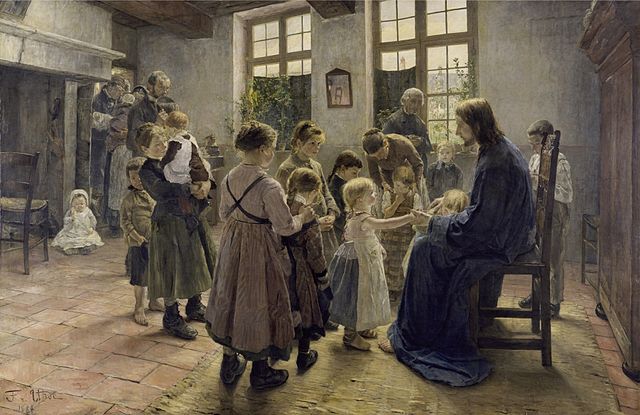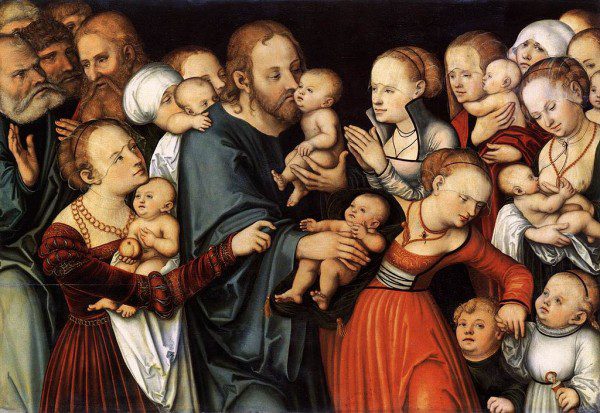
More from Fritz von Uhde, the 19th century Lutheran artist we’ve been discussing. This one, “Let the Little Children Come to Me,” is an example of von Uhde’s device of portraying Bible stories in contemporary settings (that is, contemporary for his time). The effect is for viewers to see their reality of these Biblical truths for today and for people like themselves.
And this painting is particularly Lutheran, as I’ll explain after the jump.
The account of Jesus receiving the little children (Luke 18:15-17) is strangely missing from ancient and medieval iconography. You don’t really see it in art until the Reformation. And, specifically, by Lutheran artists and in Lutheran churches.
This is because Lutherans used the account to defend infant baptism, along with the grace extended to young children and to the fact that they too can have a relationship with Jesus.
The patron of this blog, Lucas Cranach, painted a very memorable rendition of this account.

I love how crowded this painting is, with all of the babies, toddlers, and their mothers all jostling around Jesus.
We saw a painting on this topic in an old Lutheran church in Finland.
Credits: By Fritz von Uhde – 1. scanned from book2. – 5. Unknown6. akg-images.de, Public Domain, https://commons.wikimedia.org/w/index.php?curid=5140782
Lucas Cranach the Elder [Public domain], via Wikimedia Commons














